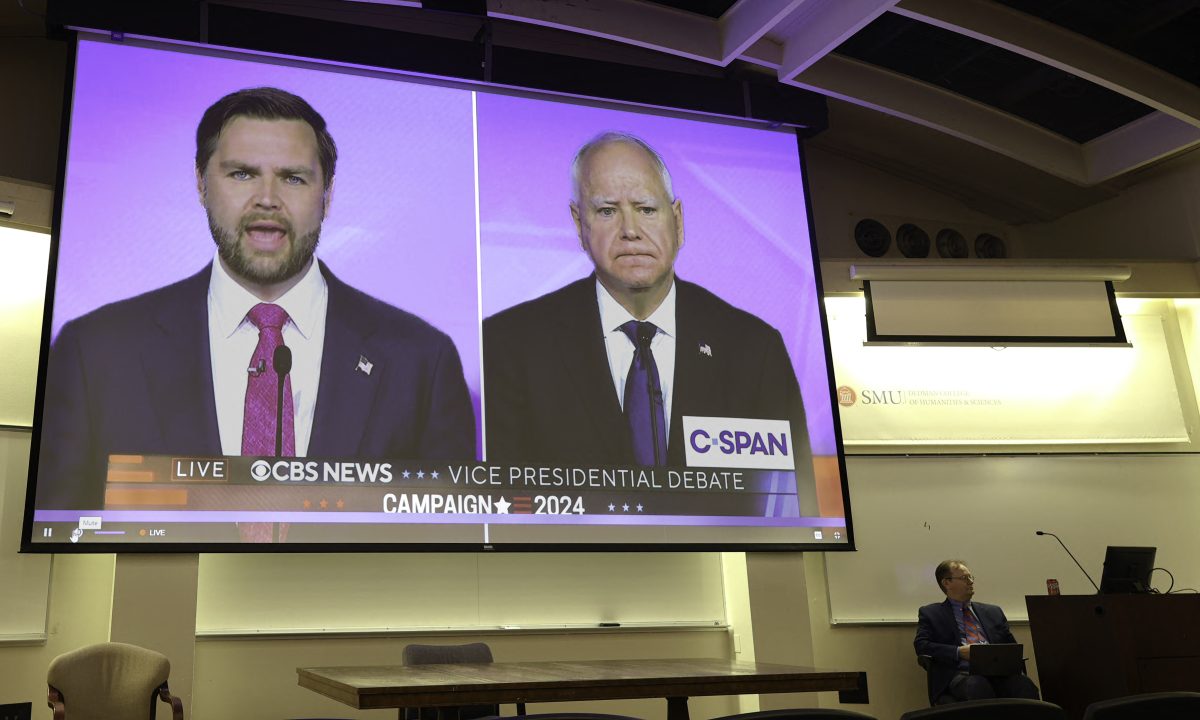A recent freeway initiative and new Texas license plate law mayslow down Dallas drivers before the New Year. The Dallas PoliceDepartment has devoted extra resources to ticketing speeders on thefreeways and monitoring the new license plate law until January2004.
On Nov. 3, the DPD decided to put a traffic initiative ineffect. The plan includes designating extra patrol officers onDallas expressways for one purpose only, to give tickets. The newstrategy places 20 officers on the freeways from 6 a.m. until 10p.m. Monday through Friday.
“Until the New Year drivers should be extracareful,” Dallas police officer Rob Spurgeon said. “Weare really cracking down on traffic violations.”
The freeway initiative has recorded 3,117 citations for speedingin its first two weeks. Local freeway speed limits range from 60-65mph, and the DPD is ticketing people on average for 20 miles overthe limit. According to officials, the highest speed clocked so farwas 96 mph in a 60 mph zone.
Police officials said they are concerned for localcitizens’ safety when it comes to the freeways. They want tocontrol the number of accidents, fatalities and road rage byslowing down drivers.
“Dallas is the world’s worst for speeding. It is sounsafe, it’s scary,” Spurgeon said.
Along with ticketing speeders, officers will be giving ticketsto people whose license plate covers make the license difficult toread. This includes covers with university insignia or any otherdecorative device, such as sorority or fraternity vanitydecoration.
The license plate law, found under Transportation Code 502.409,says anything put on or around a license plate that obscures it isillegal.
According to one official, not many tickets have been issued forthis violation. Since its implementation Sept. 1, 2003, he has noknowledge of any tickets being given.
“I didn’t even know about it (the law),”senior Nadia Vaughan said. “What? They are going to pull meover for my SMU cover, and charge me $200. That’scrazy!”
Police officials say the new Texas law, which is already beingused in other states, was enacted to help identify cars afterhit-and-run accidents and to monitor tollway and red-lightrunners.
“Our job is a lot harder when you can’t tell whatstate the plates are from,” local police Sgt. Curtis Brasilsaid. “This law will help everyone out in the longrun.”
Police officials said that areas such as Garland and Richardsonwill benefit most from the new law. They have computer-enhancedprograms that track a license plate number when a car runs a redlight, allowing the issuance of a citation or warning.
“It’s good to know that the police are out theretrying to prevent accidents,” Vaughan said. “But Ican’t believe I could get a ticket for something on mylicense plate. Don’t they have more important things to worryabout?”








